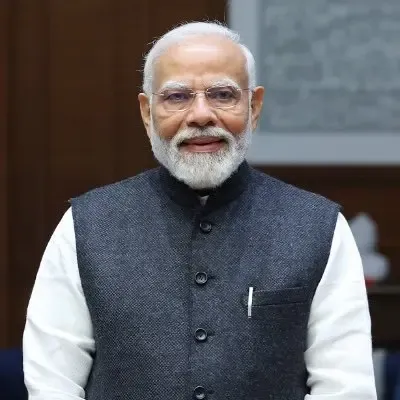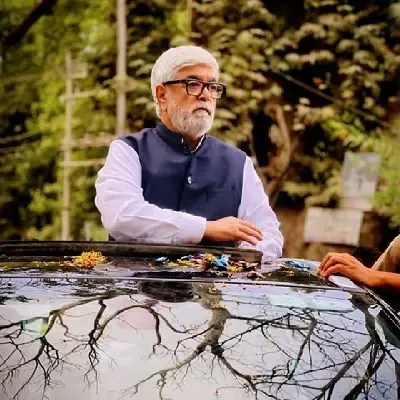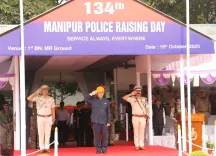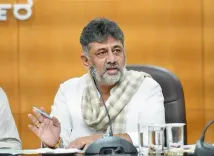Can Wayanad's Hume Centre Lead the Way in Climate Research?

Synopsis
Key Takeaways
- Community engagement is crucial for effective climate action.
- The Hume Centre's methods improve climate prediction accuracy.
- Integrating traditional knowledge with science offers a powerful model for climate adaptation.
- The centre promotes scientific literacy among the youth.
- Support from organizations like Rainmatter Foundation facilitates outreach and community programs.
Wayanad, Oct 19 (NationPress) Priyanka Gandhi Vadra, the Congress leader and MP for Wayanad, recently praised the groundbreaking initiatives of the Hume Centre for Ecology and Wildlife Biology, emphasizing its community-centered strategy for tackling climate change and disaster risks in the vulnerable hill district of Kerala.
In a post on X, accompanied by a video from her visit, the Congress leader expressed her deep appreciation for the young team spearheaded by Director C.K. Vishnudas and social scientist Suma Das.
She highlighted that the Hume Centre's distinctive method of gathering data from tribal communities, local residents, and farmers has significantly improved predictions of landslides and weather events, making them more precise and timely.
"They are doing exceptional work towards understanding the implications of climate change, disaster management, and fostering a scientific mindset among Wayanad's youth," stated Priyanka Gandhi Vadra.
"It was genuinely enlightening to learn from them. They have made us all proud, and I hope their insights can be shared globally."
Founded in 2005 in Kalpetta by wildlife conservationists, scholars, and educators, the Hume Centre conducts thorough scientific research on biodiversity and ecosystems, advocating for conservation with active community participation.
Over the years, it has concentrated on monitoring extreme rainfall and flooding in Wayanad's river basins, addressing issues like habitat fragmentation, infrastructure effects, and climate challenges.
A pivotal initiative is its community-based climate monitoring system, which empowers locals to observe environmental shifts, thereby enhancing resilience against catastrophic events such as the devastating floods of 2018 and recent landslides that resulted in loss of life.
C.K. Vishnudas, an expert in Indian bird ecology and conservation, leads projects focused on endangered species and habitats.
Suma Das applies her social science expertise to unite scientific research with community engagement.
The Hume Centre's programs also encompass biodiversity surveys, wildlife education, and workshops for youth to cultivate scientific curiosity.
The video shared by Priyanka Gandhi Vadra captures her engaging with staff and students, observing presentations on climate data, and touring the facility, highlighting the centre's commitment to sustainable development.
This visit occurs amidst growing concerns regarding Wayanad's ecological vulnerability, further exacerbated by deforestation and unpredictable monsoon patterns.
Experts acclaim the Hume Centre for its successful integration of traditional knowledge and modern science, offering a template for worldwide climate adaptation.
The Congress MP's endorsement has ignited interest in replicating such initiatives across the nation, as India confronts rising climate-related disasters.
The Hume Centre, bolstered by grants from organizations like the Rainmatter Foundation, continues to broaden its outreach, including the forthcoming Wayanad Bird Festival scheduled for November 2025.









